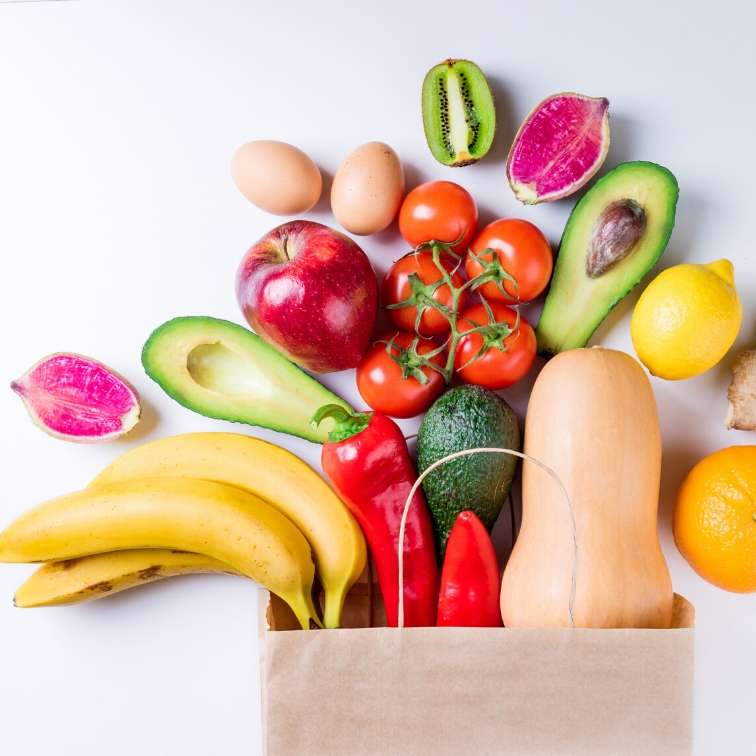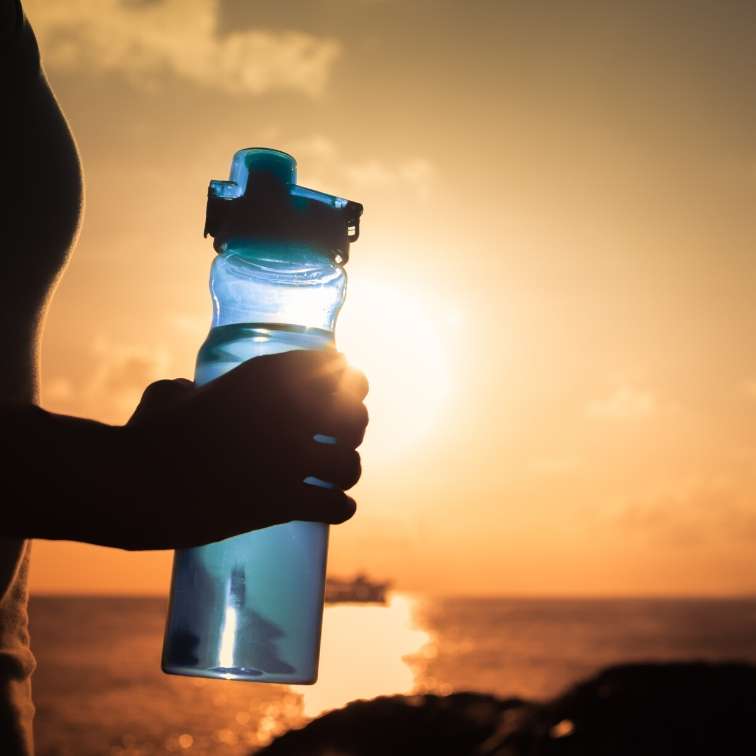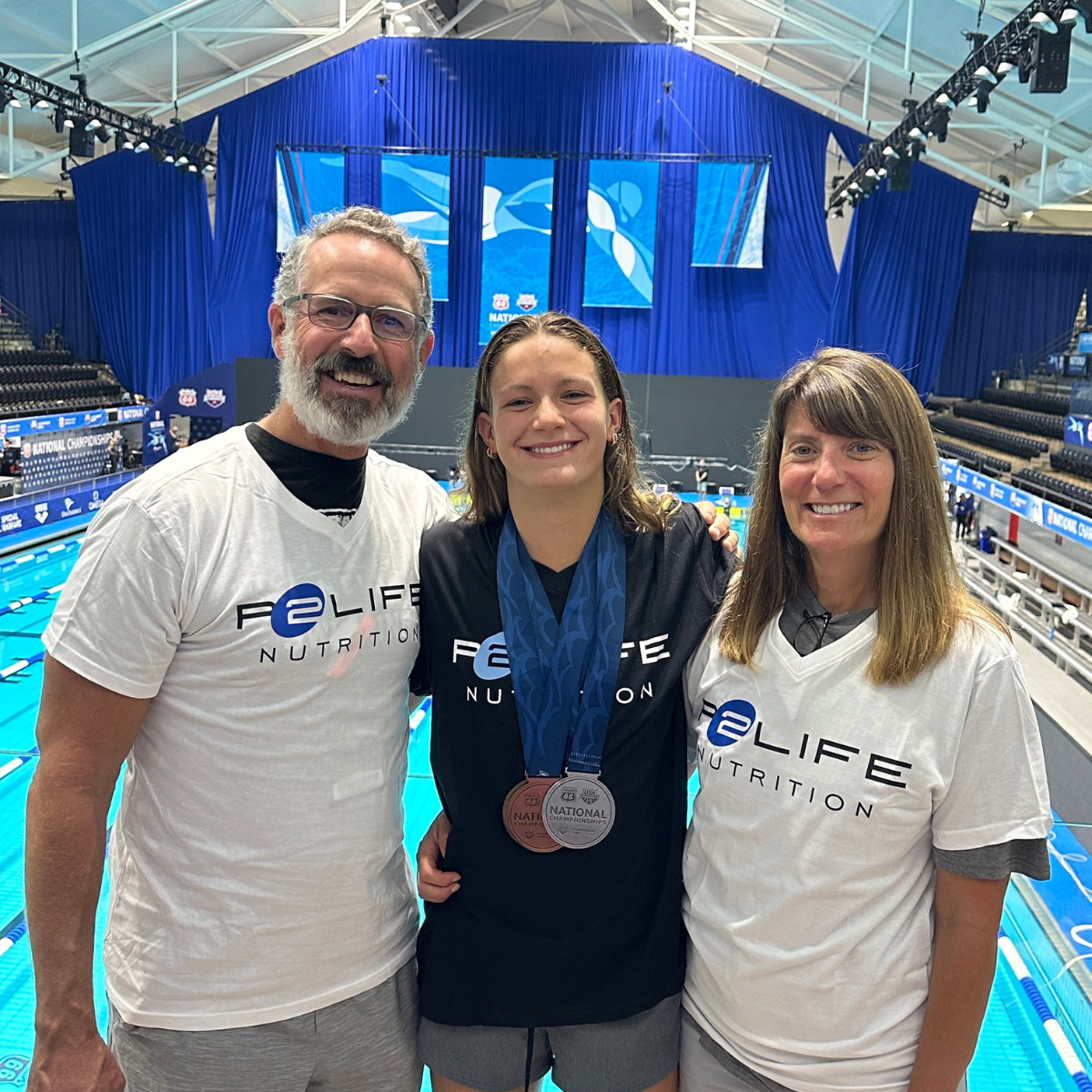
Nutrition for Youth & Teenage Swimmers
All athletes strive to be at the top of their game, and of course, nutrition is a big part of that athletic success. But what are the unique needs of young swimmers? Do their needs change as they develop, and are they susceptible to the same nutrient deficiencies as adults? Well considering that your child's body is still developing, there are critical components to their nutritional diet plan that cannot be overlooked.
Since the USDA estimates moderately active children aged 9–13 years old need about 1,600-2,000 calories per day for females and 1,800-2,000 for males, to support the demands of normal growth and development, the young swimmer is going to need more than this since they are more active than a regular child. The typical energy expenditure of a regular two-hour swim practice will likely put their calorie needs above 2,700 depending on the intensity of the practice. So beyond just overloading your child's plate with unnecessary calories, and encouraging them to "eat more", make sure they are eating right to ensure athletic success.

Is my child getting enough?
Limited studies of energy balance in young athletes have been published, and conservative recommendations on nutrition for teenage swimmers have been made. But self-reported diet records of young athletes often indicate that intake of energy, carbohydrate, and select micronutrients may be below recommended levels, especially with deficiencies in calcium, iron, folate, vitamin B6, and zinc for young athletes.
For calcium needs, a young athlete’s growing bones cannot handle as much stress as an adult’s mature bones so optimum bone health is critical. To prevent the overtraining injuries that so many young swimmers are also susceptible to, make sure they are getting enough calcium from dairy products, leafy greens, beans, and fruit.
For iron, sports dieticians recommend eating foods that are high in iron, such as red meat and enriched cereals and grains, paired with fruits and vegetables that are high in vitamin C, which aids in iron absorption. Without iron, young athletes are putting their bodies at risk for extreme fatigue, impaired immune function, and impaired cognitive reasoning, all of which are negative side effects of this mineral deficiency.
And finally, zinc which plays a role in wound healing, tissue growth, and maintenance, should be included in a young swimmer's diet to ensure proper protein absorption and use. If your child's body is not getting the fuel it needs during this growth period, poor nutrition leads to deficiencies that can lead to illness or fatigue, decrements in bone growth and maintenance, and they may not reach their potential for muscle development.
Eat for Fuel
Encourage your swimmer to eat a balanced diet and to eat for fuel so that they can be successful in the pool, and in the classroom. An adolescent swimmer needs to incorporate carbohydrates, protein, and fat into each meal to provide the body with the proper fuel for both training and growth. Because carbohydrates are the preferred fuel for athletic performance, about 55% of total daily calories should come from carbohydrates. Your young athlete has the capacity to store carbohydrates in the form of glycogen, but this capacity is limited, so carbohydrates must be consumed daily. Included on the plate should be protein, which is a key element of building, maintaining, and repairing muscle and other body tissues. Lean sources of protein like chicken or fish, dairy products, and nuts are healthy food choices. Make sure your young swimmer is eating 3 balanced meals a day, with a few snacks in between meals. Since your young athlete is probably on the go from class to practice, pack some snacks that can stay in their backpack or gym bag for when they feel the need to refuel and aren't tempted to nosh on potato chips or candy.

Fast "Food"
Speaking of poor food choices, unfortunately for young athletes they are tempted to make bad choices when they are out with their friends and they're chowing down on nutrient-poor foods from the fast food drive-through, or are at the mercy of whatever the school vending machine and cafeteria offered. Not only are these foods excessive in fat, salt, sugar, and under-deliver important nutrients like iron, calcium and B vitamins, they set the tone for future food cravings. Don't let them have empty calories and encourage healthy choices instead. Encourage them to carry snacks with them, and when at the fast food spot, order items that are heavy on the veggies, or order options that aren't fried. For example, order the burger without the bun, or get the rice bowl with grilled chicken instead of the fried chicken laden with salty sauces. Also, advise your child to stay away from sodas, energy drinks, "fruit" juices, and "vitamin" waters, which besides being overloaded with empty calories can help create the wrong eating habits.
Eating right and staying on track doesn't have to be overwhelming or complicated for your child. It's easier to get them started on healthy habits early and eating right as a family, which benefits everyone. Start by serving balanced meals at home, when possible, which include a combination of the following foods: whole grains, protein, dairy foods, heart-healthy fats, and fruits and vegetables. Setting the example ensures that your young swimmer is making the best choices for their nutrition and their athletic success!
Sources:
http://hubbardswim.com /docs/RecTeam/ Nutrition_for_Swimmers.pdf
http://www.usaswimming.org/ ViewNewsArticle.aspx? TabId=1&itemid= 3593&mid=8712
http://www.usaswimming.org/ ViewNewsArticle.aspx?T abId=1&itemid= 5074&mid=8712
https://fnic.nal.usda.gov/ dietary-guidance/dietary-reference -intakes/dri-tables-and- application-reports
Looking for more swimmer nutrition news? Check out our post Do Protein Shakes Work?










Leave a comment
This site is protected by hCaptcha and the hCaptcha Privacy Policy and Terms of Service apply.